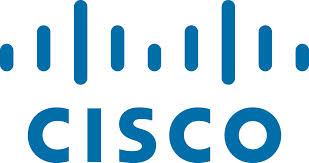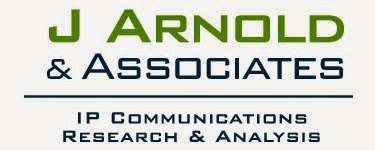Friday, October 14, 2005
Internet Regulation/Lawful Intercept - Canada and US Parallels
This morning Jeff Pulver made an impassioned plea to take notice of how the FCC is looking to exend CALEA's reach into the area of Internet-based communications. As he notes, it's very disturbing to see how the FCC wants to see the regs encompass all forms of Internet-based voice communication - whether or not it touches the PSTN. In their language, this would include services that are "CAPABLE" of receiving or terminating calls on the PSTN. I'm not a lawyer, but this is certainly not in the spirit of Net Freedoms.
On Wednesday, I posted about how the Canadian government wants carriers to support an extensive regime of wiretapping capability. This was front page news here, and it's now a hot topic. There are a lot of parallels here, and it's interesting to see attention drawn to both countries in the same week.
Both stories are a call to action, as Jeff has noted in his posting. As mentioned, I'm not a lawyer, and can't comment on the finer points of the issue. But clearly, there is cause for concern in the IP community. If the FBI and/or CSIS (Canada's equivalent)succeed in getting legal intercept for all Internet-based calls, will email or web surfing be far behind? These are huge issues around privacy, freedom of expression, etc., and they seek to threaten the freedoms that make the Internet so appealing and empowering in the first place.
At this point, I'm an early messenger, trying to spread the word. I'd also like to pass on some valuable links for anyone interested in learning more about the Canadian situation. Rob Hyndman is tech lawyer based here in Toronto, and he sent me these links after reading my Wednesday posting. His input is much appreciated, and I just wanted to share it for anyone wanting to follow this more closely. Rob also has a nice blog, which I will add to my blog roll as soon as I can add that feature to my blog page. I don't think Rob will mind the plug!
First is Michael Geist, who's with the Faculty of Law at Ottawa University. His commentary poses some key questions for Ottawa to consider in terms of what they are really trying to accomplish.
Second is CIPPIC - the Canadian Internet Policy and Public Interest Clinic. This is a good resource for the more technical aspects of Internet policy and privacy issues.
On Wednesday, I posted about how the Canadian government wants carriers to support an extensive regime of wiretapping capability. This was front page news here, and it's now a hot topic. There are a lot of parallels here, and it's interesting to see attention drawn to both countries in the same week.
Both stories are a call to action, as Jeff has noted in his posting. As mentioned, I'm not a lawyer, and can't comment on the finer points of the issue. But clearly, there is cause for concern in the IP community. If the FBI and/or CSIS (Canada's equivalent)succeed in getting legal intercept for all Internet-based calls, will email or web surfing be far behind? These are huge issues around privacy, freedom of expression, etc., and they seek to threaten the freedoms that make the Internet so appealing and empowering in the first place.
At this point, I'm an early messenger, trying to spread the word. I'd also like to pass on some valuable links for anyone interested in learning more about the Canadian situation. Rob Hyndman is tech lawyer based here in Toronto, and he sent me these links after reading my Wednesday posting. His input is much appreciated, and I just wanted to share it for anyone wanting to follow this more closely. Rob also has a nice blog, which I will add to my blog roll as soon as I can add that feature to my blog page. I don't think Rob will mind the plug!
First is Michael Geist, who's with the Faculty of Law at Ottawa University. His commentary poses some key questions for Ottawa to consider in terms of what they are really trying to accomplish.
Second is CIPPIC - the Canadian Internet Policy and Public Interest Clinic. This is a good resource for the more technical aspects of Internet policy and privacy issues.
Subscribe to:
Post Comments (Atom)











1 comment:
Posted by: Alan Gahtan
It will be interesting to see just how relevant all this becomes. From a technical perspective, any intercept would not provide access to any encrypted communications. So, someone using SSL protected forms, or SSL protect email, would be difficult to monitor. Also, with increasing use of WIFI, I suspect users will increasingly use VPNs to proxy servers in order to protect their wireless communications. If those proxy servers are located outside the relevant jurisdiction, the access orders won't do much good. However, I guess until the infrastructure for SIP-based VOIP servers gets upgraded to incorporate encryption, those conversations will be ripe for interception.
Post a Comment